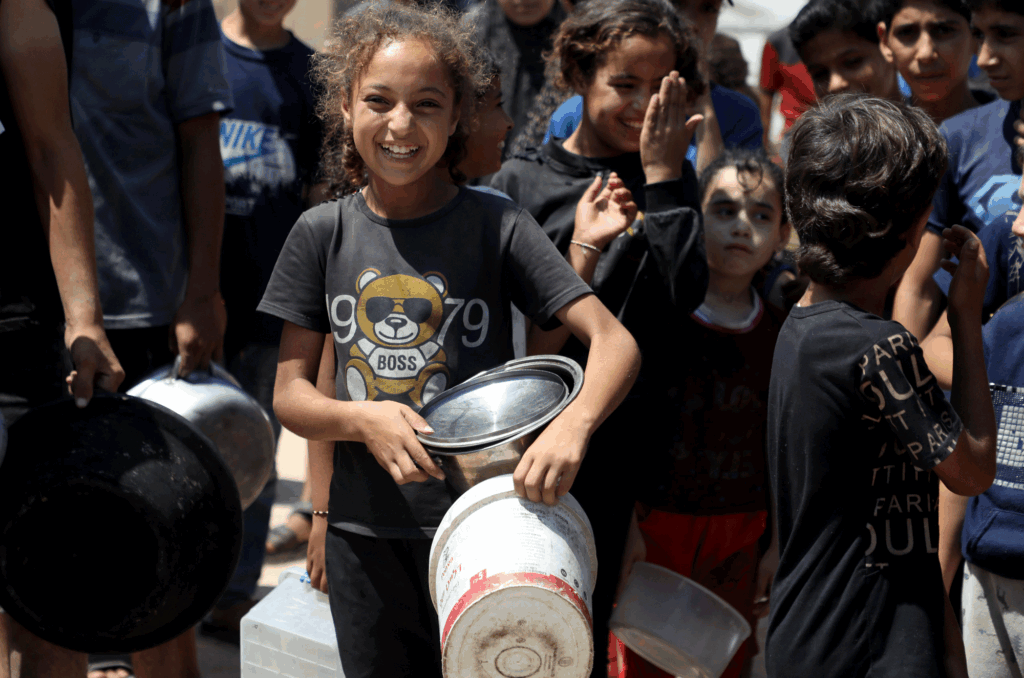Sep, 2021
Shoe donations are welcome as Lebanon’s economic crisis makes buying a new pair a costly challenge for many
More than a year since the devastating blast in Beirut’s port, many residents still walk city streets in torn or worn out slippers or even barefoot. Lebanon’s economic crisis has forced prices higher, making it nearly impossible for some families to afford good quality items like shoes to protect their feet from cuts, bruises and infections. The challenge is more serious amid Lebanon’s shortage of medicines and other health products.
With winter approaching, many families wonder how they will manage to stay healthy in the cold. Their worries are eased now, thanks to Anera’s distribution of 43,601 pairs of shoes donated by UNICEF Lebanon. The shoes, from sneakers to ankle boots, have been distributed to Beirut families most severely affected by last year’s port blast.
Anera has organized the distribution through local partners like Beirut Basecamp, Women's Program Association, Dar El Amal and Karagheusian Association.
The Karagheusian Association is a primary healthcare medical social center in Burj Hammoud, which is located only minutes away from the site of the port explosion. Like most of Lebanon’s health care centers, the association is challenged by the deepening economic crisis.
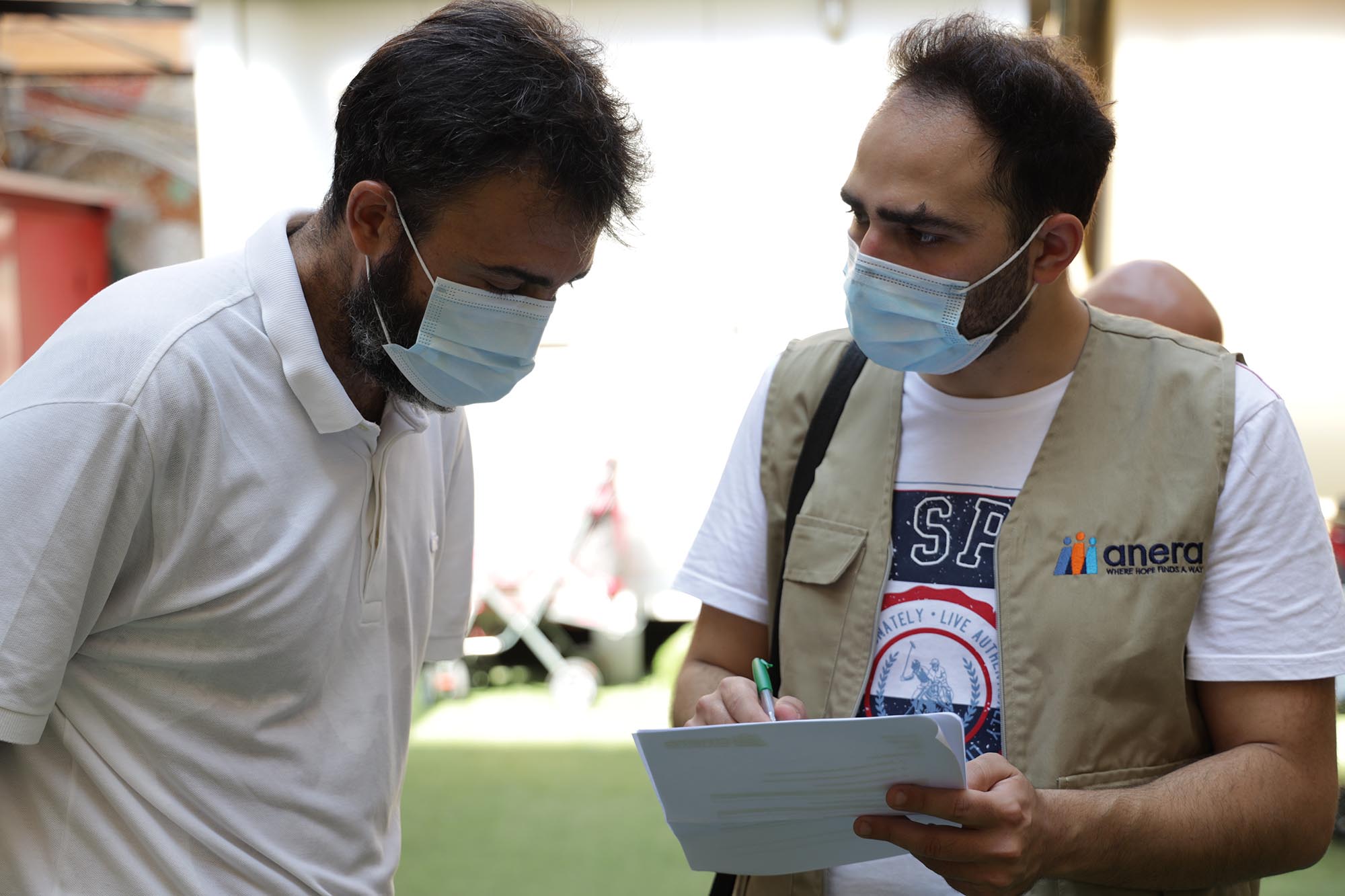

Serop Ohanian, who heads the association, is grateful for the shoe donation that can help protect his patients. “We’ve seen people coming in with ripped shoes and slippers. UNICEF’s shoe donation definitely came at the right time.”
Serop says the health center has been overwhelmed since the explosion. “The number of people seeking our services has increased dramatically since the Beirut blast, more than 1,000 a day, but we are not equipped enough to serve such huge numbers.” Still, Serop has vowed to keep the center operating to help those in need.
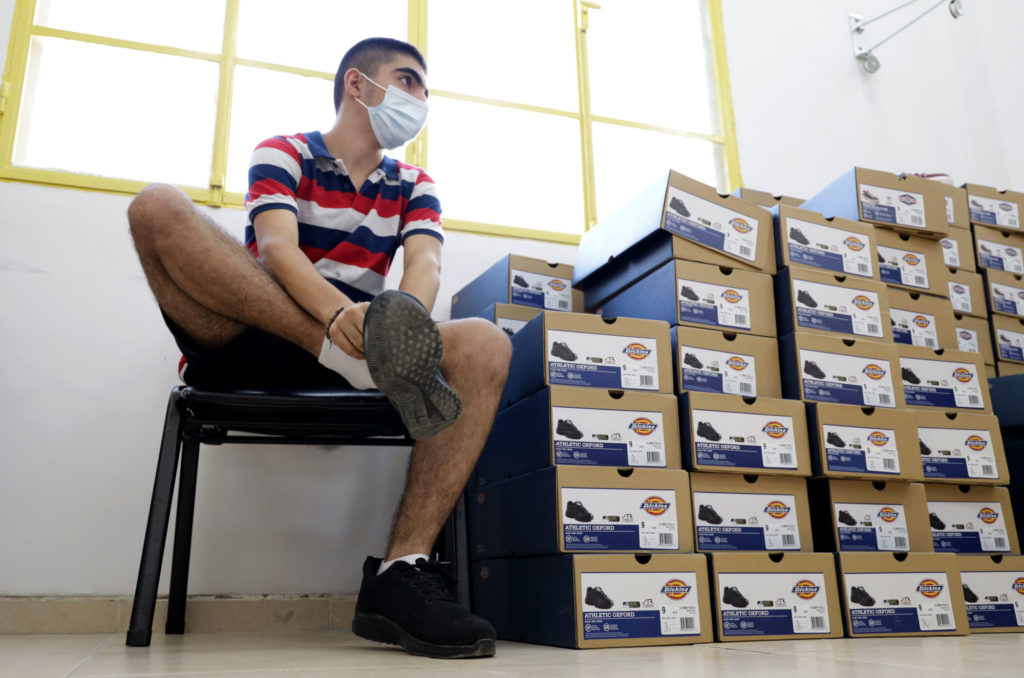



“It makes me happy to see there are people helping others in these dire times.”
One of the center’s young patients was delighted with her new shoes. 13-year-old Nazo is still traumatized a year after the port blast and was excited to get a decent pair of shoes. “I was at home when the Beirut blast happened and got so scared. It was terrifying. I came today with my mother to get new shoes and this makes me so happy.”
Smiling, Nazo adds, “It makes me happy to see there are people helping others in these dire times.”
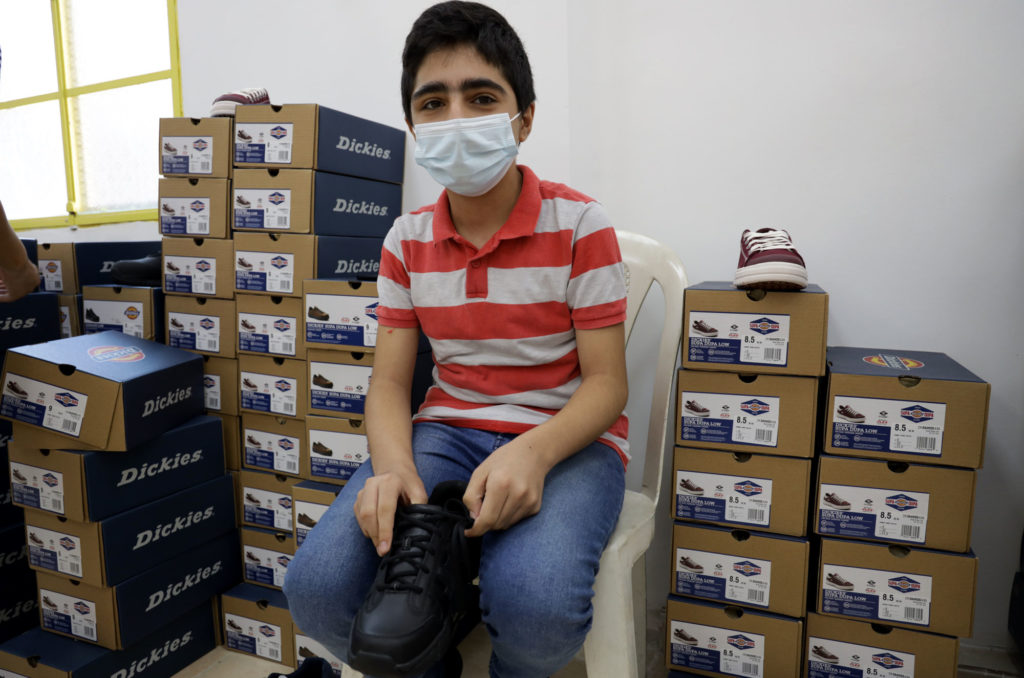

Mary, 41, fled war with her children nine years ago. “When we arrived in Lebanon, the situation wasn’t great but it was okay. My children went to school like normal children and life was starting to feel normal. But after the blast last August nothing is normal and we are still suffering.”
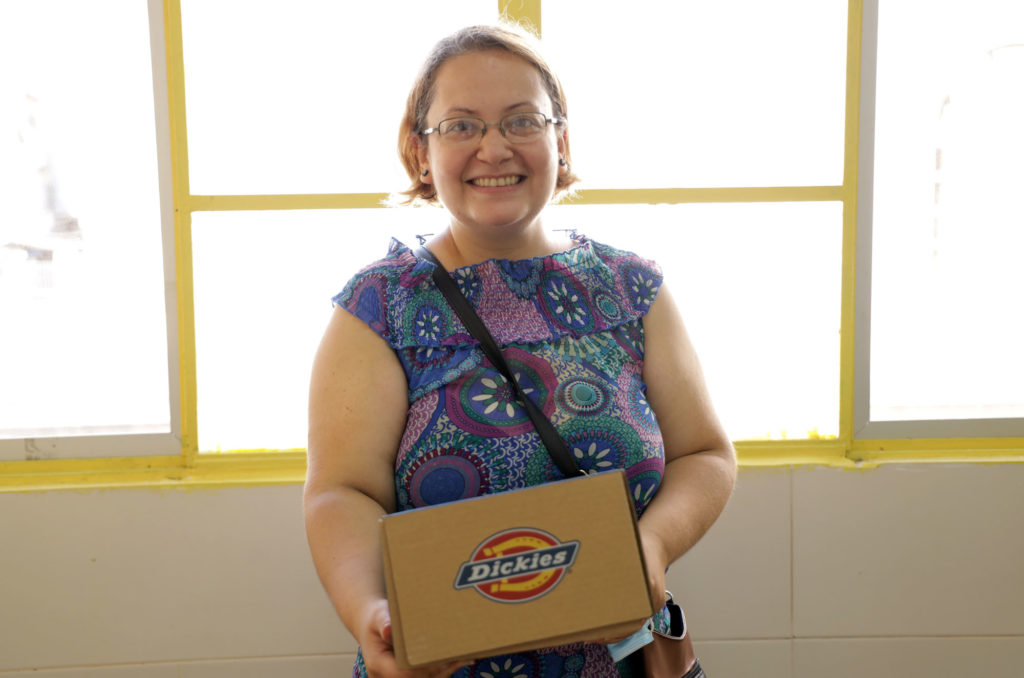

The explosion destroyed their home and all their belongings. “My children and I were covered in blood from the flying glass. My 12-year-old daughter lost her ability to speak as a result of the shock, and she and I are still suffering from major psychological repercussions after the explosion. I live with the daily fear that there will be a new explosion.”
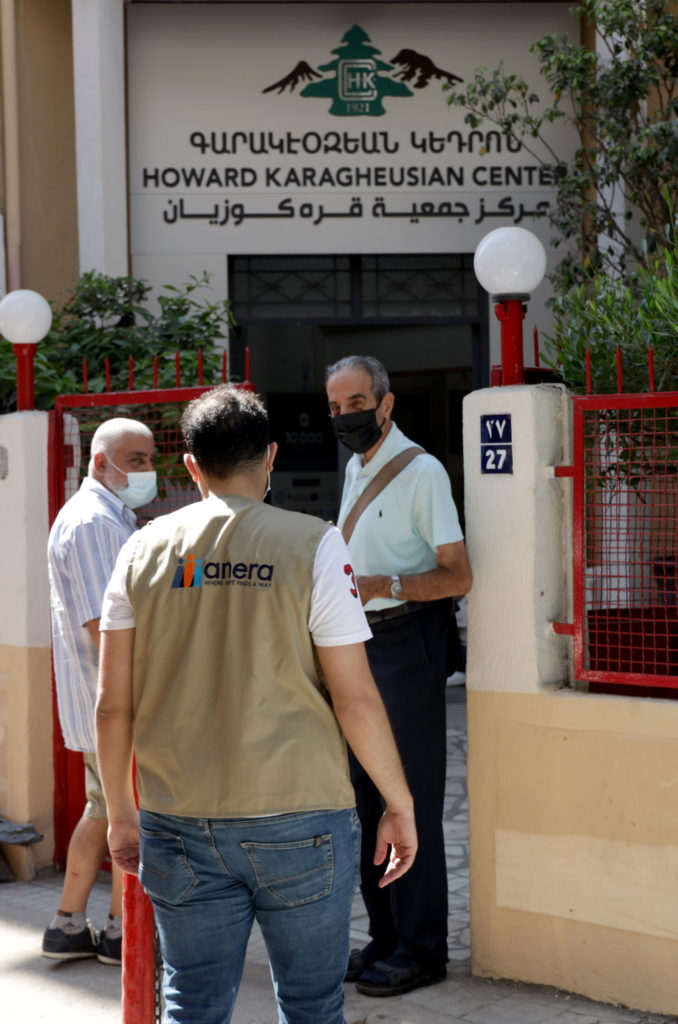

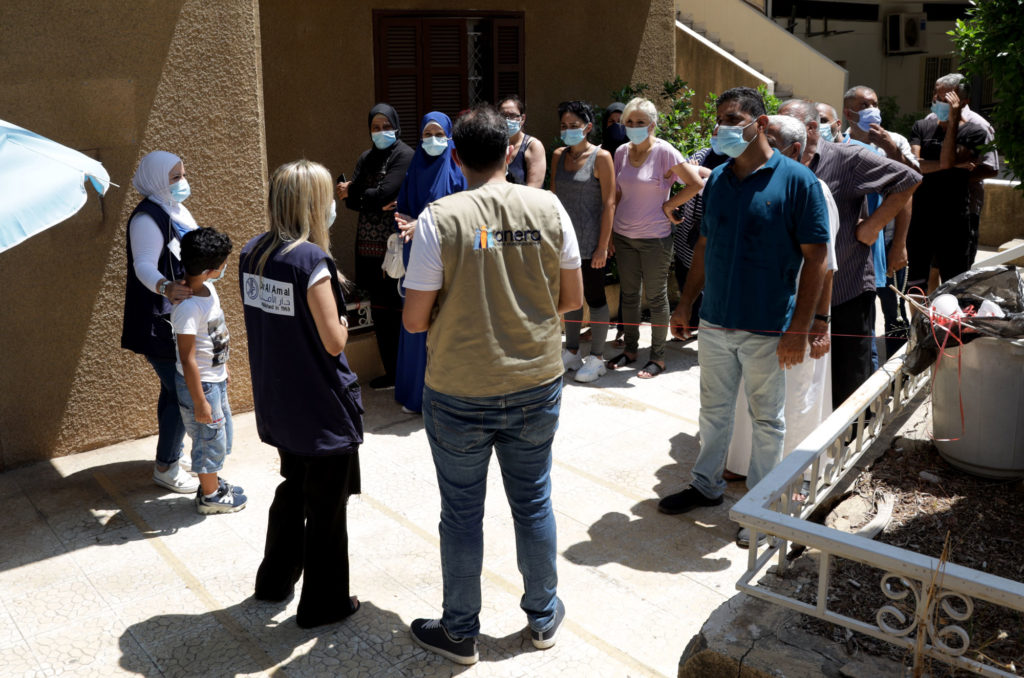



“I was able to get shoes for the whole family."
Mary says she can still see her neighbors’ faces covered in blood every time she closes her eyes.
When she heard about the shoe distribution, it lifted her spirits. “I was able to get shoes for the whole family. This simple gesture will bring them some happiness amid all the misery we live in and that makes me feel better too.”
Powered by


